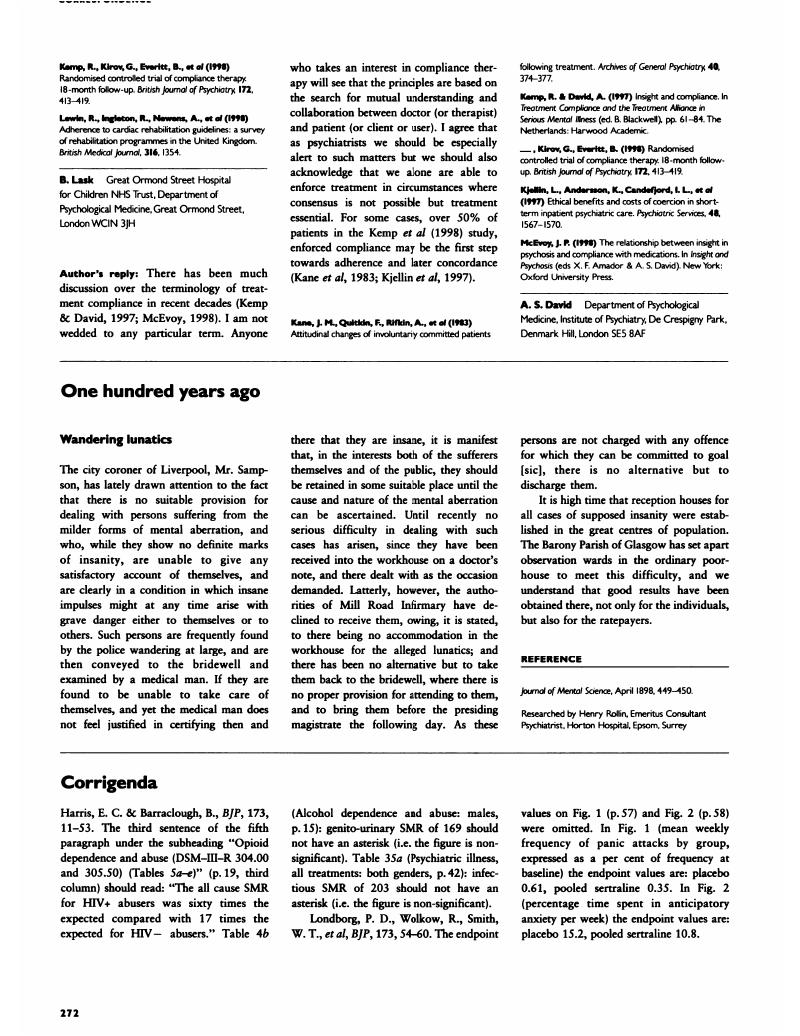No CrossRef data available.
Article contents
[No Title]
Published online by Cambridge University Press: 03 January 2018
Abstract
An abstract is not available for this content so a preview has been provided. Please use the Get access link above for information on how to access this content.

- Type
- Columns
- Information
- Copyright
- Copyright © 1998 The Royal College of Psychiatrists
References
Kane, J. M.
Quitkin, F.
Rifkin, A.
et al (1983) Attitudinal changes of involuntarily committed patients following treatment. Archives of General Psychiatry, 40, 374–377.CrossRefGoogle ScholarPubMed
Kemp, R. & David, A. (1997) Insight and compliance. In Treatment Compliance and the Treatment Alliance in Serious Mental Illness (ed.
Blackwell, B.), pp. 61–84. The Netherlands: Harwood Academic.Google Scholar
Kemp, R.
Kirov, G.
Everitt, B. (1998) Randomised controlled trial of compliance therapy. 18-month follow-up. British Jurnal of Psychiatry, 172, 413–419.Google Scholar
Kjellin, L.
Andersson, K.
Candefjord, I. L.
et al (1997) Ethical benefits and costs of coercion in short-term inpatient psychiatric care. Psychiatric Services, 48, 1567–1570.Google Scholar
McEvoy, J. P. (1998) The relationship between insight in psychosis and compliance with medications. In Insight and Psychosis (eds
Amador, X. F. & David, A. S.). New York: Oxford University Press.Google Scholar





eLetters
No eLetters have been published for this article.